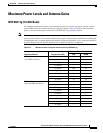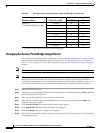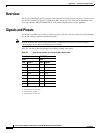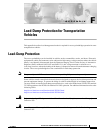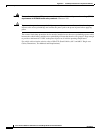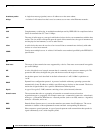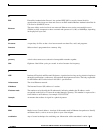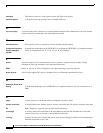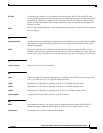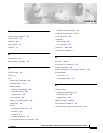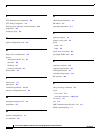
GL-1
Cisco Aironet 1300 Series Outdoor Access Point/Bridge Hardware Installation Guide
OL-5048-02
GLOSSARY
Numeric
802.11
The IEEE standard that specifies carrier sense media access control and physical layer
specifications for 1- and 2-megabit-per-second (Mbps) wireless LANs operating in the 2.4-GHz
band.
802.11a
The IEEE standard that specifies carrier sense media access control and physical layer
specifications for wireless LANs operating in the 5-GHz frequency band.
802.11b
The IEEE standard that specifies carrier sense media access control and physical layer
specifications for 5.5- and 11-Mbps wireless LANs operating in the 2.4-GHz frequency band.
802.11g
The IEEE standard that specifies carrier sense media access control and physical layer
specifications for 6-, 9-, 12-, 18-, 24-, 36-, 48-, and 54-Mbps wireless LANs operating in the
2.4-GHz frequency band. This standard is also backward compatible with the IEEE 802.11 and
IEEE 802.11b standards.
A
access point
A wireless LAN data transceiver that uses radio waves to connect a wired network with wireless
stations.
ad hoc network
A wireless network composed of stations without Access Points.
antenna gain
The gain of an antenna is a measure of the antenna’s ability to direct or focus radio energy over a
region of space. High gain antennas have a more focused radiation pattern in a specific direction.
associated
A station is configured properly to allow it to wirelessly communicate with an Access Point.
B
beacon
A wireless LAN packet that signals the availability and presence of the wireless device. Beacon
packets are sent by access points and base stations; however, client radio cards send beacons when
operating in computer to computer (Ad Hoc) mode.
BOOTP
Boot Protocol. A protocol used for the static assignment of IP addresses to devices on the network.
BPSK
A modulation technique used by IEEE 802.11b-compliant wireless LANs for transmission at 1
Mbps.



